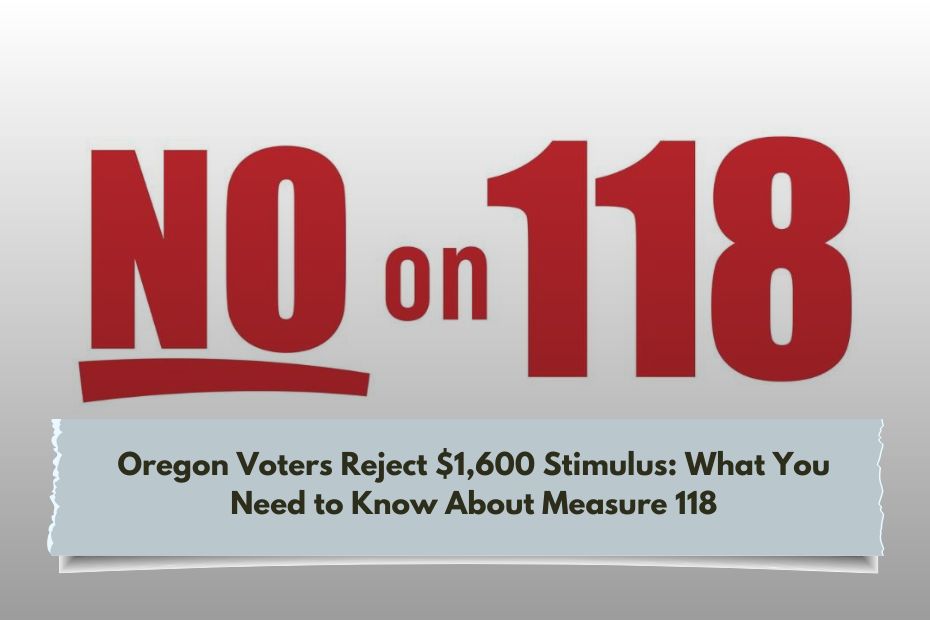In Oregon, the proposal for a $1,600 stimulus check under Measure 118 was a topic of significant debate during the November 5, 2024 elections. The measure, designed to provide financial support to vulnerable families starting in 2026, was rejected by voters. The debate around Measure 118 sheds light on the challenges of balancing economic aid with state fiscal responsibility.
What was Measure 118?
Measure 118 proposed giving $1,600 every year to all eligible Oregon residents. This financial aid was intended to support families struggling with the rising cost of living. To fund this initiative, the measure suggested a 3% tax increase on businesses making over $25 million in annual sales.
The eligibility for this payment was simple: residents needed to have lived in Oregon for at least 200 days during the year of application. There were no income or age restrictions for the payments, making the program inclusive for all residents.
Voter Rejection of Measure 118
Despite the potential benefits of the program, voters in Oregon rejected the measure. Official reports showed that 79% of voters opposed the proposal, while only 21% supported it. One of the main reasons behind this rejection was the proposed tax increase on businesses, which many feared would harm the local economy.
Critics also pointed out that the measure lacked transparency on how the collected tax money would be managed, leading to concerns about potential mismanagement and unintended consequences. The absence of clear safeguards for how the program would operate added to the skepticism.
Key Dates for Measure 118
| Date | Event/Action | Amount |
|---|---|---|
| November 5, 2024 | Election Date for Measure 118 | $1,600 |
| 2026 | Potential Start for Payments | $1,600 |
Social and Economic Impact
The rejection of Measure 118 means that many low-income families in Oregon will not receive the extra $1,600 they had hoped for. This could have been a much-needed financial boost for families dealing with increasing living costs.
However, voters were more concerned about the negative effects on businesses. The proposed tax hikes could have made Oregon less competitive as a business-friendly state. The public seemed to prefer solutions that would not harm the economy or businesses, even if it meant sacrificing financial support for residents.
What Does the Future Hold?
Although Measure 118 failed, the discussions sparked by the proposal could lead to future attempts at providing economic support to Oregonians. Future proposals may focus on more balanced approaches, ensuring transparency in fund management and addressing the concerns of businesses and residents alike.
Moving forward, it will be essential for any new economic stimulus measures to consider both the needs of the people and the health of the local economy. The failure of Measure 118 has shown that public trust is crucial for any economic proposal to succeed.
Conclusion
Measure 118, despite its potential benefits, faced strong opposition from voters due to concerns over business taxes and transparency. This outcome highlights the complexities of designing policies that balance economic support for residents while ensuring the health of the state’s economy. Future efforts may need to take a more careful and well-rounded approach.
FAQ’s
What was the amount proposed under Measure 118?
Measure 118 proposed a $1,600 annual payment to eligible Oregon residents.
Why was Measure 118 rejected?
The main reason for the rejection was concerns about the proposed tax increase on businesses, which could harm the economy.
What could happen next for Oregon’s economic stimulus programs?
Future programs may focus on better transparency and balance, addressing both the needs of residents and the business community.

